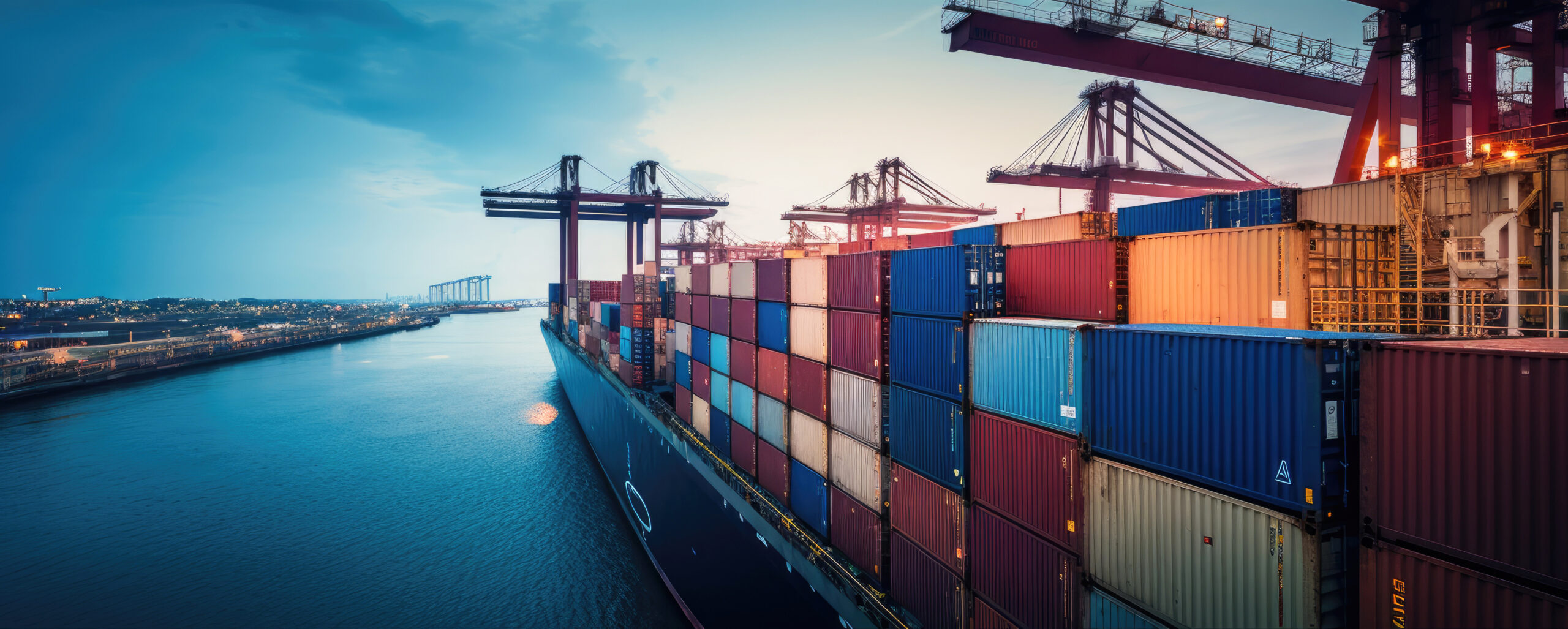Posts tagged dockworkers
Union Workers Turn on Trump Tariffs: ‘Direct Attack on the Working Class’
April 29, 2025 // While the ILWU said that decades of free trade agreements had "negatively impacted American workers," it criticized Trump's approach to addressing this as "haphazard and destructive," while warning that the costs of food, energy and household goods would rise as a result. Similar warnings have been issued by associations representing the retail and home construction sectors, while the United Auto Workers union (UAW)—which had previously voice its support for "aggressive tariff action to protect American manufacturing jobs"—has recently offered a more critical view on Trump's import duties.
Labor’s Hidden Monopoly: Why the FTC Should Probe Union Power Too
April 1, 2025 // However, the modern economy calls for a fresh assessment of how we balance worker representation with the benefits of competition. Just as the FTC scrutinizes corporate mergers that could harm consumer welfare, it should consider the anticompetitive effects when a single union controls a significant share of an industry's workforce. Indeed, the FTC’s Bureau of Economics and Office of Policy Planning are both positioned to play a key role in researching labor markets to identify barriers to competition—including those created by government laws and regulations. By studying these dynamics, the FTC can publish research and spotlight how certain government-imposed rules or union protections may inadvertently stifle competition and harm workers.

US dockworkers approve 6-year contract, averting a strike
February 27, 2025 // The contract calls for a 62% pay hike over six years that would lift hourly wages at the top of the union pay scale from $39 an hour to $63 an hour. ILA President Harold Daggett, who served as the union’s chief negotiator, was quoted in the statement as saying the agreement is “the ‘gold standard’ for dockworker unions globally.” He remarked that it was a difficult contract to negotiate and even required a three-day strike last fall, but “We now have labor peace for the next six years.”
Fearing AI will take their jobs, California workers plan a long battle against tech
January 19, 2025 // More than 200 trade union members and technologists gathered in Sacramento this week at a first-of-its-kind conference to discuss how AI and other tech threatens workers and to strategize for upcoming fights and possible strikes. The Making Tech Work for Workers event was convened by University of California labor centers, unions, and worker advocates and attracted people representing dock workers, home care workers, teachers, nurses, actors, state office workers, and many other occupations.
Second US port strike averted as union, employers reach deal
January 9, 2025 // The talks had been extended until Jan. 15 to hammer a deal on automation. Shipping industry executives, customers and analysts had been concerned that the parties would be unable to overcome their impasse, leading to a second ILA strike just days before President-elect Donald Trump's Jan. 20 inauguration. A three-day ILA strike in October had triggered a surge in shipping prices and cargo backlogs at the 36 affected ports. Longshoremen returned to work after employers agreed to a 62% wage increase over the next six years.
ILA union and port owners held secret meeting on automation as new strike looms
January 8, 2025 // A secret meeting between representatives of the International Longshoremen’s Association and the USMX port ownership group was held on Sunday to make headway on the issue of port automation that needs to be resolved by Jan. 15 to avoid a new East and Gulf Coast ports strike. A document produced from the meeting and reviewed by CNBC indicates ports willing to pair any new technology with new union jobs, but it could also introduce new risks to a deal, with added labor costs threatening terms agreed to in October for a 62% pay hike for union workers.
Dockworkers to resume contract negotiations as strike threat looms
January 4, 2025 // The big sticking point holding up a deal is automation. The union wants to hold it back and stop the installation of more semi-automated cranes at the ports. (Two ports, in Norfolk, Virginia, and Bayonne, New Jersey, already use the technology.) The group representing port employers, the United States Maritime Alliance, wants to advance its use of technology.
Transportation unions face key dates that could mean strikes in 2025
December 30, 2024 // Flight attendants at United Airlines, dockworkers on East Coast and Gulf Coast ports and locomotive engineers who operate NJ Transit commuter trains are all engaged in negotiations to reach new contacts. The International Longshoreman’s Association, known as the ILA, and the Brotherhood of Locomotive Engineers and Trainmen are the closest to potential strike dates in 2025.
Trump backs dockworkers in fight against automation. The move risks higher prices, experts say
December 14, 2024 // The U.S. Maritime Alliance, or USMX, the organization representing shipping firms in negotiations, said on Thursday that such automation would improve efficiency and increase capacity. Those enhancements would benefit U.S. companies and consumers that depend on goods from abroad, the group added. “We need modern technology that is proven to improve worker safety, boost port efficiency, increase port capacity, and strengthen our supply chains,” USMX said in a statement.
Canada’s Labor Minister ends coast-to-coast port labor turmoil, forcing unions back to work
November 14, 2024 // Stephen Lamar, CEO of the American Apparel & Footwear Association, told CNBC it is relieved operations will resume at Canada’s three busiest ports and hopes a long-term, mutually beneficial agreement comes out of the negotiations. “The lockouts of the Canadian ports were causing ships to divert and contributing to congestion and delays throughout North America. As Canada faces reduced rail capacity from mandatory winter train length safety restrictions, and the U.S. West Coast faces two-year high rail dwell times, further disruptions would greatly strain the transportation networks,” Lamar said.
